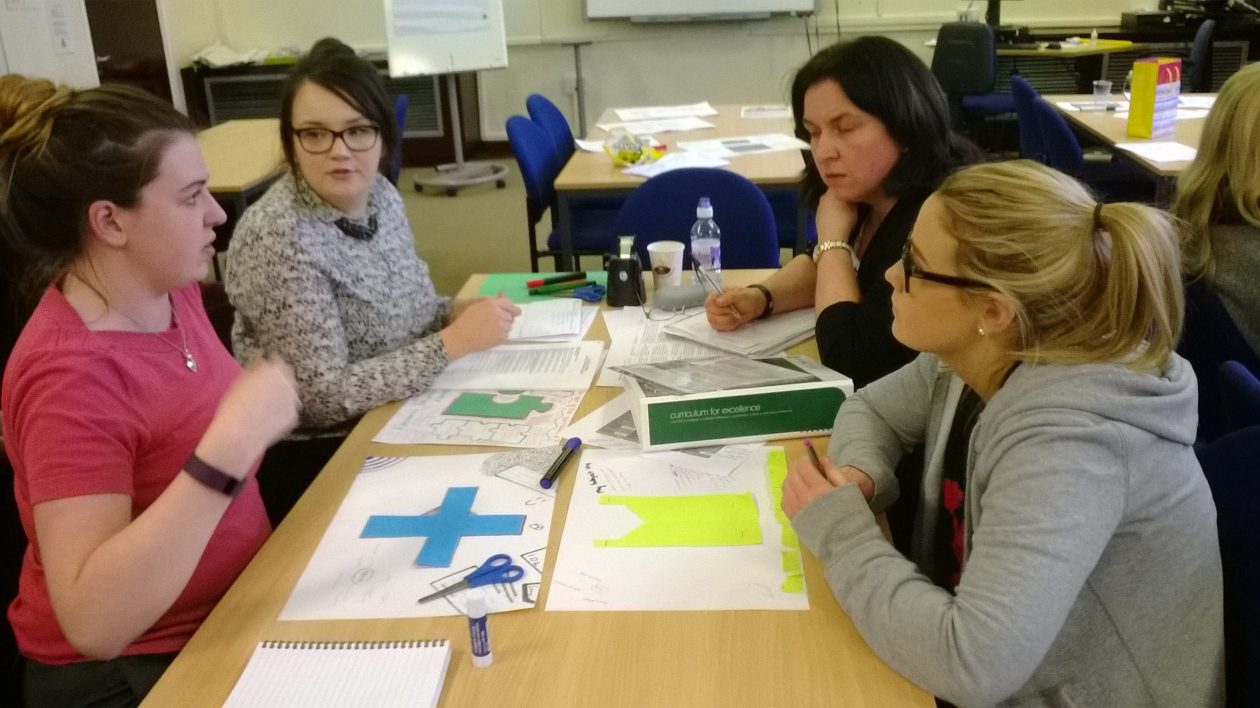 On 28th February and 1st March, Yvonne McBlain supported probationer teachers from Falkirk secondary schools with their exploration of interdisciplinary learning. Yvonne designed the 3 hour session as a practical and experiential engagement with the various elements of the curriculum. Click here to view the blog post which shares the power point presentation she created to refer to during the two afternoon sessions. This presentation proved useful to pop into at relevant points and enabled Yvonne to demonstrate a learner centred and responsive teaching approach. The simple learner-led planning structure which can be seen in the photo was used to help co-create the working sessions.
On 28th February and 1st March, Yvonne McBlain supported probationer teachers from Falkirk secondary schools with their exploration of interdisciplinary learning. Yvonne designed the 3 hour session as a practical and experiential engagement with the various elements of the curriculum. Click here to view the blog post which shares the power point presentation she created to refer to during the two afternoon sessions. This presentation proved useful to pop into at relevant points and enabled Yvonne to demonstrate a learner centred and responsive teaching approach. The simple learner-led planning structure which can be seen in the photo was used to help co-create the working sessions. 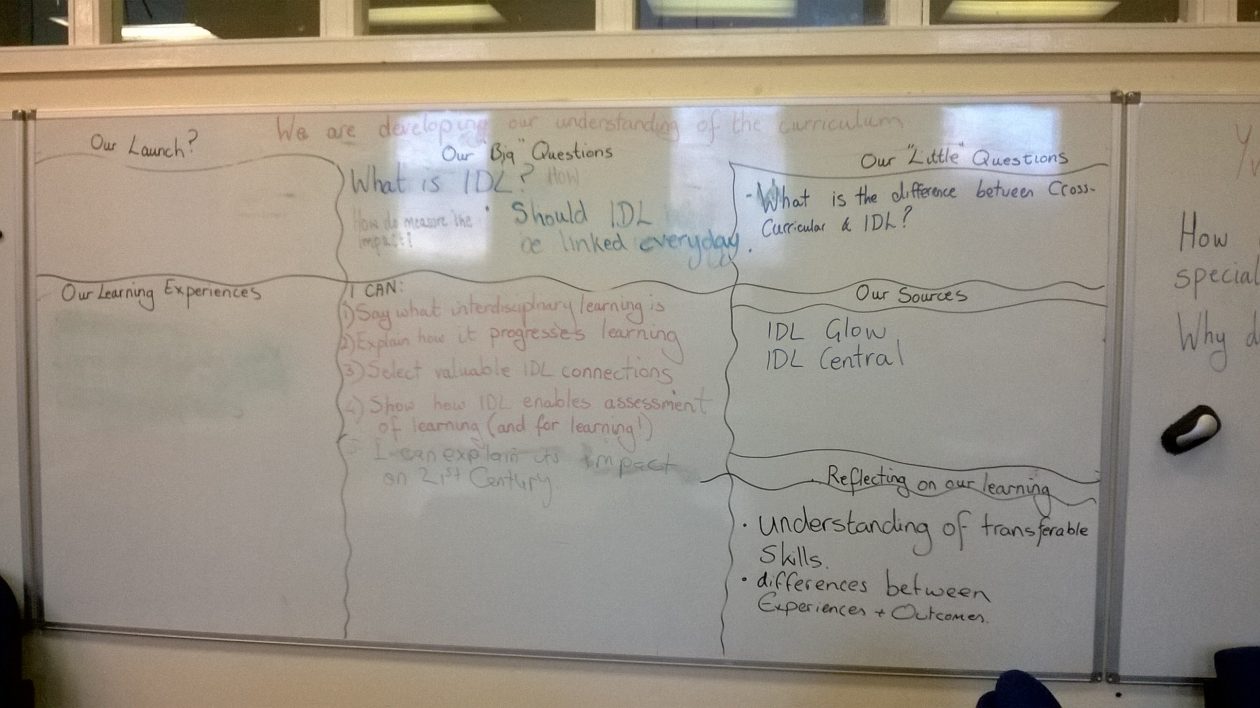
The “concrete preparation” or “warm up” task required NQTs to explore big questions such as:
How did you come to be a subject specialist?
Why does your subject need to be part of Scotland’s curriculum?
How does your subject contribute to the learners’ development of the 4 capacities?
Take a look at the photo below, and click here to see the creative visuals our probationer teachers used to answer these questions.
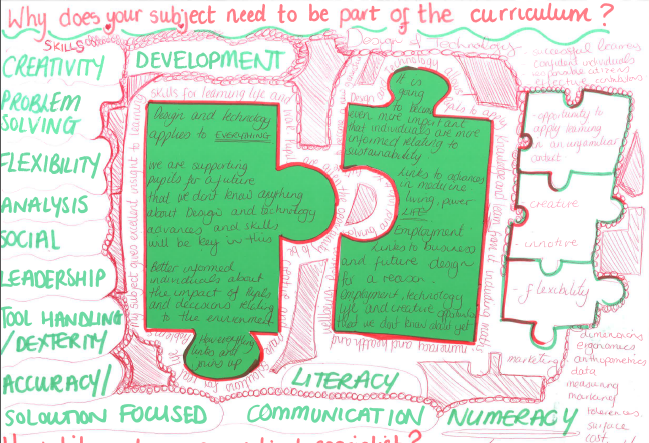
Based on the teachers’ prior knowledge of IDL, Yvonne led them through experiences which enabled them to explore:
- The essential skills, knowledge and attitudes that their subject experiences and outcomes provided for pupils
- An opportunity to become familiar with the essentials skills, etc which another subject provides for pupils
- A chance to explore how they could group or “bundle” their subject with key learning in literacy, numeracy and health and wellbeing.
- An opportunity to work closely with teachers of other subjects to find valuable interdisciplinary connections through careful analysis of the experiences and outcomes. Click here and here to see the “bundles” created by both groups of practitioners.
Yvonne referred to the power point at relevant stages to make sure that probationers had key information about the structure of the curriculum – how could their subject-specific and interdisciplinary work address each of the four contexts for learning? Were they aware of the “cross-cutting themes” which run across and through Curriculum for excellence? The diagrams pictured were used to communicate this important information, and probationer teachers had time to search for experiences and outcomes which embedded elements of Learning for Sustainability, Creativity and Enterprise/World of Work.
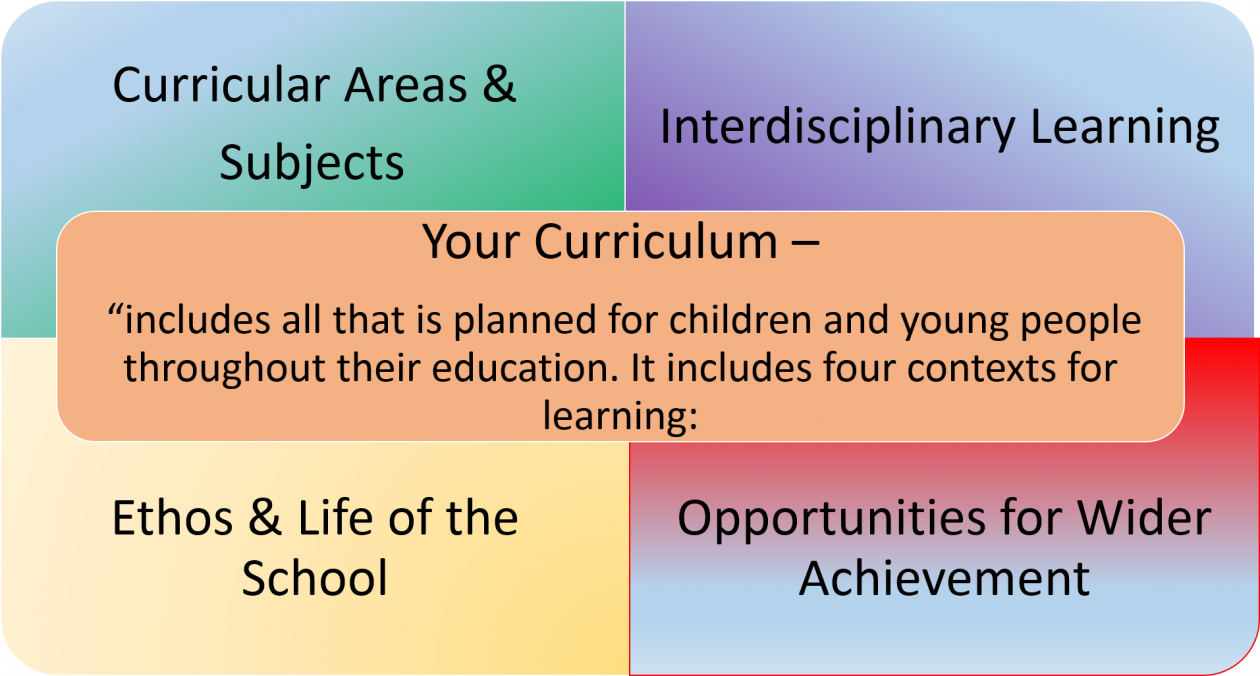
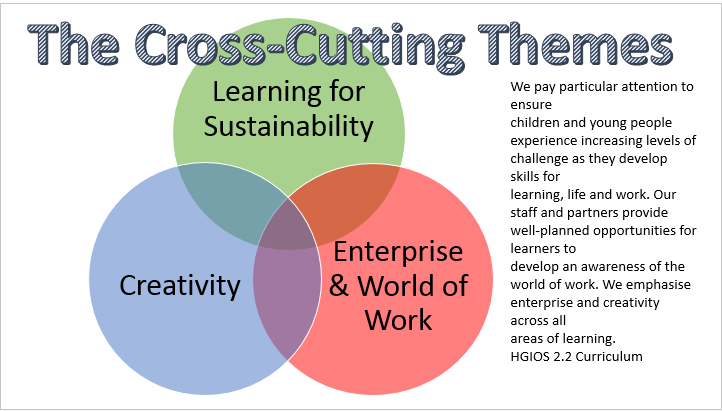
The professional learning session had to be staged and multi-layered in order to convey the many elements of the curriculum and teaching which are managed during the planning and teaching of interdisciplinary learning. The probationer teachers engaged very well with each task, demonstrating their understanding and their ability to combine experiences and outcomes which would give pupils added IDL value from their learning. Each group had the chance to consider how their third level bundle could or would progress into fourth level, and how this could relate to national qualifications. Some groups very skilfully described how they could manage this, and gave details of how they could accommodate the IDL they had planned into their existing timetables.
The impact of the session can be seen from the probationer teacher feedback below:
“Informative session with content which I can use to help me make a positive contribution to the planning and implementation of the upcoming S3 IDL programme.”
“This session provided guidance on how to plan and manage a successful IDL project that I will take forward when completing working group project to deliver an S3 IDL day. It was particularly useful to work in small peer groups to troubleshoot potential issues in planning an effective event.”
“I understand the benefits of IDL and can see the importance of recognising the transferable skills”
“The E&O’s exercise was difficult due to some subjects just naturally not fitting well together according to their experiences and outcomes”
“I have a better understanding of the differences between IDL, cross-curricular and trans-curricular experiences and can see how E&Os can be bundled, effectively and ineffectively, to create new IDL experiences”
“I will continue to emphasise more about transferable skills learned in my class with other subjects so pupils can use these skills in other subjects.”
Feedback on these sessions is still coming in, and suggests that not every probationer teacher perceived this as an active and engaging experience. However, the majority of comments make it clear that key messages about IDL as one of the 4 contexts of Curriculum for Excellence have been learned. There is an understanding that all planning should come from connections between the experiences and outcomes rather than only through a context, should be planned in collaboration with others around these connections and around opportunities to apply skills in an unfamiliar or new context.
